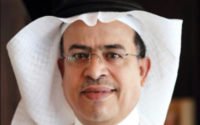 Zeid Al-Jehni, general manager, Heidelberg ME. He in conversation with Benjamin Daniel, editor, Packaging MEA, discusses Heidelberg and Gallus’ new machines and its future.
Zeid Al-Jehni, general manager, Heidelberg ME. He in conversation with Benjamin Daniel, editor, Packaging MEA, discusses Heidelberg and Gallus’ new machines and its future.
Benjamin Daniel (BD): I know a lot of new things are happening in the region in terms of business and economy. Heidelberg in the Gulf region as a company too has some changes in its organisation.
Zeid Al-Zehni (ZAJ): Heidelberg Middle East FZCO is a joint venture between Heidelberg Druckmaschinen AG and the Juffali Group. The company was established in the year 2000 covering Saudi, Bahrain, Oman Qatar UAE and Iraq. We have had a successful 18 years together. We have enjoyed very good market share and an excellent sales record. As you know there has always been a head of operations from Heidelberg AG’s side heading the gulf region while I’m based in Saudi as the general manager for the group. Recently Mazen El Tibi after being with us for around eight to ten years has decided to take a break and be back in Germany. He’s still part of Heidelberg in Germany and handles the European region. Roger Nicodime replaces Mazen here as general manager after successfully taking the role of general manager sales since 2001. He has a good track record, is confident and a very competent person to run the operations. He will be looking after the sheetfed as well as the Gallus label packaging business in this region. I’m very confident that he will do a very successful job in achieving the company targets as well as the consumer expectations in terms of service and support required in our region.
BD: Speaking of the Gallus Innovation days 2018 here I’ve cherry picked some important products worth mentioning for all our readers. One of them is the launch of your entry level digital press – Smartfire. What do you think is the outlook of this product for our Middle East region in terms of sales?
ZAJ: I’ll take you back to the introduction of digital printing for commercial applications. When digital printing came into the market then a lot of our traditional printers were sceptical about the quality and the viability of a digital press. The same thing will apply for the specialized digital label printing. However, we have seen the result of the introduction of digital print production in our commercial environment. We are now seeing a lot of print jobs going from the traditional offset environment to the digital environment for several reasons. The quality has now come up to a good level within the commercial requirement. The actual nature of the jobs in terms of short-run lengths, quick turnarounds, flexibility and personalized and variable data printing are all ideal for digital printing. The same of course is mirror imaged in the label industry. The label industry now has a requirement of ultrashort runs.
BD: For example?
ZAJ: A bakery that runs a promotion- needs only 200 meters or a couple of thousands of labels and the traditional way will be most expensive and rigorous to produce. With the digital press it will be easier, faster and cheaper – all with a satisfactory level of quality as well. The Smartfire is a small machine but can give you a finished product including die-cutting, lamination and all. It’s really very interesting. This digital press is affordable and is positioned at the entry level. While a four-colour offset machine is a big investment, a small four- or five-colour digital press can be acquired at a fraction of the cost, can produce immediately and can generate new business opportunities that were not possible on the classical machine.
BD: You showed the Labelmaster for the first time as a prototype during the Gallus Innovation days 2016 with an official launch during Labelexpo last year. Is the Labelmaster as apple-to-apple with the ECS 340 in terms of features? How do you differentiate ECS 340 from the Labelmaster?
ZAJ: There is overlapping between the two machines in terms of application and area of coverage but the Labelmaster is the future. It will eventually cover the traditional label printing technology.
BD: What is your message to the label printers in the Middle East and to your existing and potential customers about how Gallus sets itself apart from its competition?
ZAJ: I’d say first of all printers should look for diversification; should investigate label products. I’d advise them before investing in label machines that they take time come down to St. Gallen, see the capability of our machines with live demos and meet our consultants. They can even bring their own jobs with prior notice and get advice on how to optimise the production of those jobs.
BD: Unfortunately in our region a lot of labels are still being imported?
ZAJ: Yes. This can be eliminated because we have the technology, the capability and the knowhow and the machines to produce them locally. We can even export outside as you know that Dubai is well known in exporting to the neighbouring countries and even to industrialised countries as well. There are a lot of labels in a roll, and you can reach high if you produce a whole container. That’s a lot of money.



